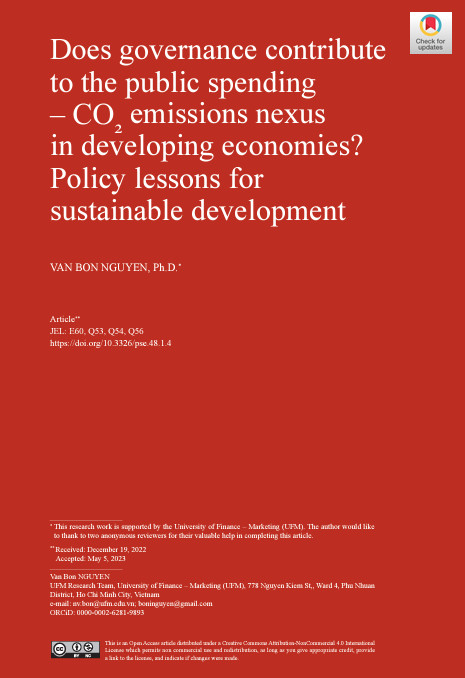Does governance contribute to the public spending – CO2 emissions nexus in developing economies? Policy lessons for sustainable development
DOI:
https://doi.org/10.3326/pse.48.1.4Keywords:
public spending, CO2 emissions, governance, developing economiesAbstract
Global climate change due to increasing CO2 emissions threatens the development and survival of many countries, especially those on the coast. Intentional government spending by sectors can lower CO2 emissions to help these countries in sustainable development. Meanwhile, governance has some importance in enabling governments to achieve their economic development goals. Does governance affect the public spending – CO2 emissions nexus in developing economies? The paper seeks answers by employing the system GMM Arellano-Bond estimators to assess the impact of public spending, governance/institutional quality, and their interaction on CO2 emissions for a sample of 109 developing economies between 2002 and 2021. The results seem counter-intuitive that public spending reduces and governance increases CO2 emissions, while their interaction lowers them. Furthermore, private investment and economic growth promote CO2 emissions, while trade openness decreases them. The findings in this paper provide some policy lessons for governments of developing economies to protect environment.

Downloads
Published
How to Cite
Issue
Section
License
Copyright (c) 2024 Van Bon Nguyen

This work is licensed under a Creative Commons Attribution-NonCommercial 4.0 International License.








